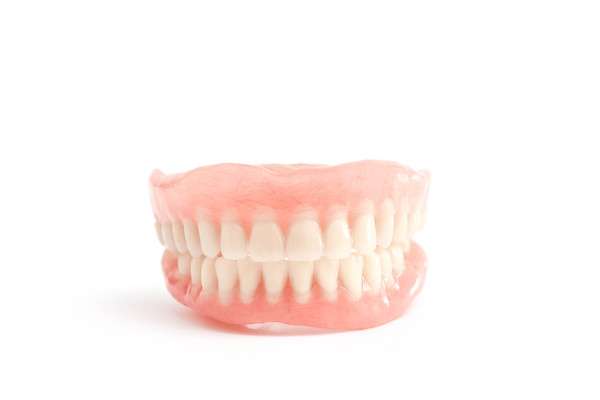 If a denture patient is experiencing sore gums, a denture relining may offer a better fit and more confidence. Dentures can have definite advantages, but only when they fit properly, allowing chewing and speech to be as normal as possible. Relining can help make this possible.
If a denture patient is experiencing sore gums, a denture relining may offer a better fit and more confidence. Dentures can have definite advantages, but only when they fit properly, allowing chewing and speech to be as normal as possible. Relining can help make this possible.
Know the types of denture relining
There are three main types of relines, each with its own benefits and disadvantages. A patient should become familiar with these terms as they can make a difference when deciding on use.
Temporary relining
When a patient has had ill-fitting dentures for a long period, causing soreness or an infection in the gums, the denture is lined with a soft, medicated material that helps the gums heal. Once healed, relining can be completed. If a temporary reline does not work, it is possible a new denture needs to be made.
Hard relining
This process entails lining the denture with material and fitting it to the patient. It then sets up to a firm, rubbery texture and subsequently replaced with acrylic, making the denture fit perfectly around all the curves of the gums. A hard reline can last for up to two years.
Soft relining
A soft reline can help compensate for uncomfortable rubbing by using a pliable material that can stay soft for a year or so, cushioning sore spots. If constant soft relining is needed, it is possible that the denture may need to be remade. The soft reline can last well beyond two years.
5 things to consider when making your choice
Armed with information regarding the types of relines available is a good start. Each person’s mouth and circumstances differ, however, changing the type needed. There are a few things a patient should consider prior to making that choice.
1. Why are relines needed?
A reline is necessary from time to time as the jaw changes. Shifting or shrinkage of the bones, gums or tissues are the main causes of needing an adjustment.
2. Does the denture have to go to the lab to be relined?
For a hard reline, the dentist sends an impression of the patient’s gums to the lab, where a permanent liner will be made. Once prepared, they will need to have the denture to place the reline. The process may take a day or two.
3. Can the dentist reline a denture in the office?
Both the temporary and the soft reline may be completed chairside, usually on the same day as a dental visit. The cost is less than a lab reline.
4. Can a patient reline the denture?
Do-it-yourself relining material can be purchased. The results are often uncomfortable and very temporary.
5. Can only a portion of the denture be relined?
It is not necessary to have the full denture relined. A dentist can discover where the problem lies and address just that section of the denture.
Check out what others are saying about our dental services on Yelp: Denture Relining in Fort Lee, NJ.
Conclusion
Dentures are a good solution for those who no longer enjoy healthy, natural teeth, but a good fit is essential. Denture relining can offer more comfort and a more secure fit.
Request an appointment or call Fort Lee Family Dental at 201-620-9772 for an appointment in our Fort Lee office.
Recent Posts
A family dentist is a dental professional who specializes in caring for the teeth and gums of people of all ages. With this being the case, we offer a wide range of services. Here is an outline of the most common treatments we provide.Routine professional cleanings are integral to maintaining optimal oral health. Our family…
Curious about how to achieve good oral health? Read on to learn about how a family dentist can help. A family dentist treats patients of all ages and provides comprehensive dental care. Maintaining good oral hygiene is crucial to your health and well-being. Preventing dental issues and keeping your teeth and gums healthy requires regular…
The teeth whitening trays from a dentist are not the same as store-bought ones. The kits do not have the same chemical strength as that from a dentist. Take-home whitening trays can whiten your teeth after a period of continuous use. If you want to know more about take-home teeth whitening trays, here are some…


